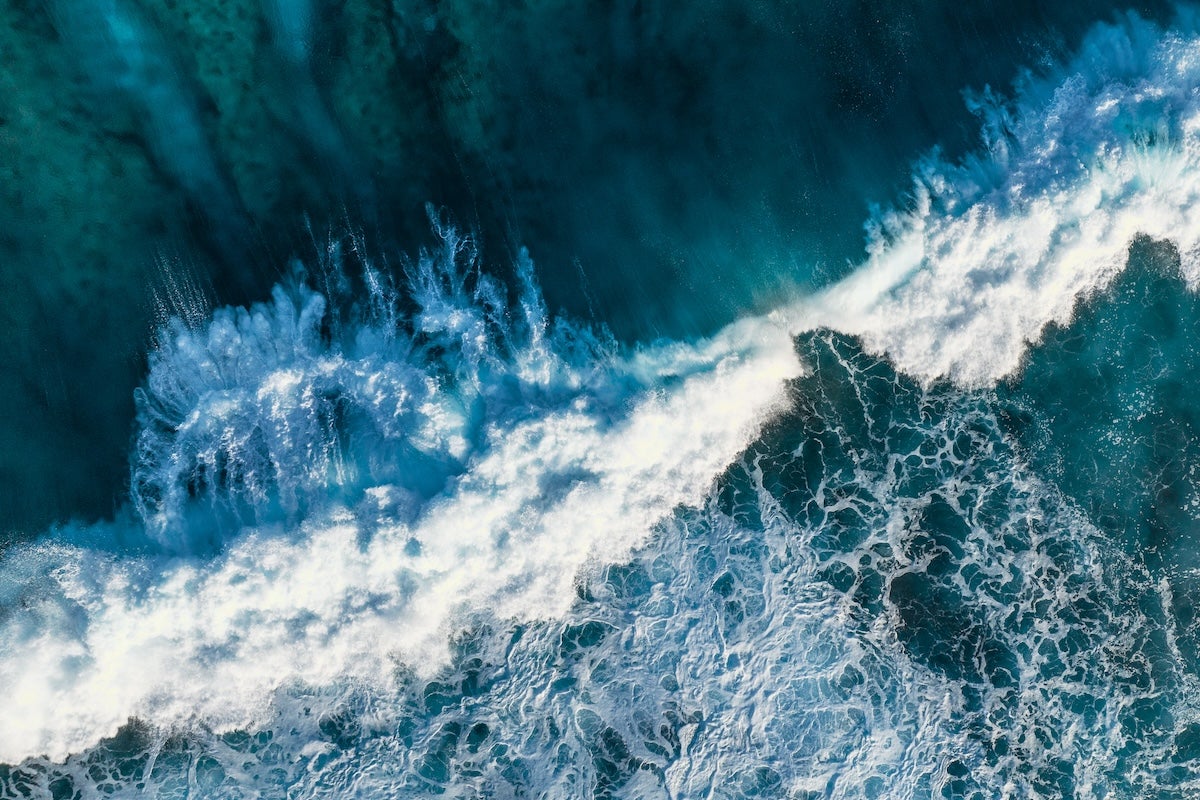World Oceans Day 2024 catalyzes new action for ocean conservation, setting the stage for saltwater to be an integral resource for solutions to water scarcity.

World Oceans Day 2024 is tomorrow, June 8.
This international celebration promotes sustainable development goals and reaffirms the importance of ocean health to overall climate health. Since 2020, it has focused on promoting the protection of at least 30% of global lands, waters, and oceans by 2030 to sustain marine biodiversity and build resilience.
Now, World Oceans Day has a new theme: Catalyzing Action for Our Ocean & Climate. This multi-year theme aims to create actionable change by persuading national legislators and corporate leaders to follow through on long-standing commitments to ocean and climate health. Key action areas include transitioning to clean, renewable energy; stopping fossil fuel extraction and production of single-use plastics; amplifying the voices of community leaders; protecting and restoring coastal and ocean ecosystems; and creating solutions based on the most accurate scientific research.
Ocean conservation is key to overcoming the current climate crisis. Not only are the oceans able to sequester huge amounts of carbon dioxide, but they also store solar radiation, distribute heat to slow global warming, and drive global weather systems. With the world’s population set to increase by an unprecedented 2 billion individuals over the next 30 years, our oceans could also be the solution to a different problem: water scarcity.
More than 70% of our planet is covered in water, yet virtually everyone on Earth experiences some form of water stress at some point each year. Over 96.5% of our planet’s water is seawater, but the limitations of current desalination technology limit humanity’s access to it as a clean water source. Currently, only 0.5% of global water is available to support 8 billion people, 80% of which already suffer from serious threats to their water supply. Developing new seawater desalination solutions could be the answer.
XPRIZE Water Scarcity is a $119 million, 5-year prize designed to drive widespread access to clean water by creating reliable, sustainable, and affordable seawater desalination solutions. Importantly, solutions must avoid negatively impacting our oceans’ health. Success in this prize will contribute towards the safeguarding and rejuvenation of healthy oceans.
WHAT IS WORLD OCEANS DAY
Canada’s International Center for Ocean Development (ICOD) and the Ocean Institute of Canada (OIC) first proposed World Oceans Day in 1992, and the United Nations (UN) officially recognized it in 2008. Its mission is to promote collaborative conservation, sustainable legislation, and wider interest in the protection and restoration of the ocean and its resources.
Thousands of organizations have partnered with or sponsored World Oceans Day since it began, including Georgia Aquarium and the National Marine Sanctuary Foundation, providing opportunities to protect and restore our ocean. Through transformative collaboration, World Oceans Day aims to create a healthy blue planet and a more equitable, just, and sustainable society.
ESSENTIAL OCEANS
Healthy oceans are essential for the continuation of life on Earth. Oceans generate over half the oxygen we breathe, regulate climate change, provide at least 20% of the animal protein we eat, and allow millions of people to earn a livelihood. Without significant advances in ocean preservation, these benefits are at risk of disappearing.
Catalyzing action will require broad improvements to public and private policy across industries–including accountability for prior negative impacts on our oceans and climate. In addition to climate change, humans have directly impacted our oceans through overfishing, coastal destruction, pollution, both acidification and deoxygenation, and causing vast losses of marine biodiversity. However, oceans also hold a vast resource, water, that could help support the global population, if managed wisely.
By 2030 it is projected that we will lack 40% of the water needed to meet global needs. No single water technology will be able to handle the water crisis. Solving this problem will require a mix of various water conservation and enhancement technologies, including desalination.
Despite being an established industry, current desalination methods are inefficient and approaching their limit. While many of the world’s largest cities lie on the coast, traditional desalination methods are environmentally unsustainable and unaffordable to low-to medium-income countries. To preserve our oceans while meeting the water demand of the future, we need to completely rethink our approach to desalination.
ENVIRONMENT-CONSCIOUS DESALINATION
This World Oceans Day, we want to reiterate XPRIZE’s commitment to sustainable and environmentally conscious novel technologies. Teams competing in XPRIZE Water Scarcity will develop solutions that are mindful of the environmental dangers created throughout the desalination process, as well as the risks that mechanical processes may pose. This includes regulation of desalination plants’ powerful intakes, which transfer seawater from the oceans directly to storage tanks, and the release of brine back into the ocean, which can pose a deadly threat to marine life.
"The winning teams from XPRIZE Water Scarcity will have created innovations that improve and maintain the environmental health of oceans. Innovations will include designs for where water enters and exits the desalination system, as well as innovations in how brine is managed and reductions in energy use and life cycle emissions."
-Dr. Lauren Greenlee, XPRIZE EVP, Food + Water + Waste
The amount of ocean water that can be desalinated without impacting marine ecosystems differs greatly between localities. Water (and seawater) is a very local resource, meaning that it has environmental characteristics that differ greatly between geographies. Each desalination plant’s operations must be dictated by environmental considerations and regulations to avoid potential detriment to the local ocean, coastal ecosystems, and wildlife.
While water scarcity is one of the great challenges confronting humanity, desalination solutions must avoid creating negative impacts on our environment. Doing so will only create new challenges, perpetuating a vicious cycle.
Successful stewardship of the oceans and alleviation of water stress must go hand in hand to create a lasting impact. XPRIZE Water Scarcity seeks to do this by revolutionizing desalination technology and creating solutions that are affordable, reliable, sustainable, and committed to upholding our oceans’ health.
Get involved or find out more at xprize.org/water.